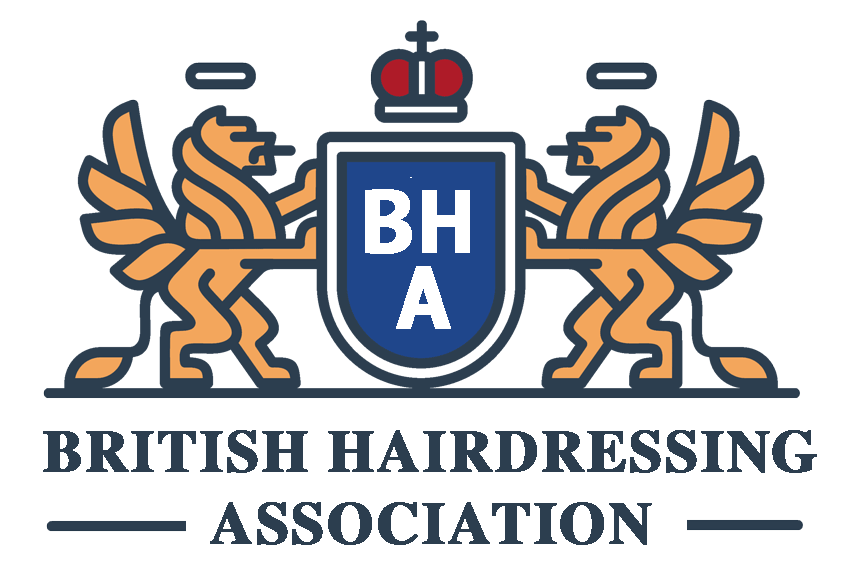Salary & Income
What does the average hairdresser earn in the UK?
How much does a hair salon owner make a year UK?
How much does a self employed Hairdresser make UK?
The income of a self-employed hairdresser in the UK can vary based on factors such as experience, clientele, location, and the number of hours worked. On average, self-employed hairdressers may earn anywhere from £15,000 to £40,000 or more per year. It’s important to note that these figures are approximate, and individual earnings can differ significantly. The success of a self-employed hairdresser often depends on building and maintaining a loyal client base.
How much do salon managers make in the UK?
The average salary for salon managers in the UK is around £20,000 to £35,000 per year, depending on factors like location, size of the salon, and the manager’s experience.
How much does a hairdresser make in London?
The average salary for a hairdresser in London is around £20,000 to £30,000 per year, depending on factors such as experience, salon location, and clientele.
How much do hairdressing teachers make in the UK?
On average, hairdressing teachers in the UK may earn around £25,000 to £40,000 or more per year, depending on factors such as experience, the educational institution, and location.
What is the best salary for a hairdresser?
How much do hairdressers make a month UK?
How are hairdressers paid UK?
Hairdressers in the UK are typically paid through various methods, depending on their employment status and the salon’s structure. Common payment methods include salaries or hourly wages for employed hairdressers, commission-based earnings, renting a chair or booth for self-employed individuals, and the receipt of tips. The specific payment arrangement varies, and it’s essential for hairdressers to clarify the terms with their employers or salon owners.
How much money do you need to open a salon UK?
Opening a salon in the UK can cost between £30,000 to £100,000 or more, depending on factors like location, size, and concept. Expenses include rent, renovations, licensing, equipment, inventory, marketing, staffing, and operating costs. A detailed business plan is essential for accurate budgeting.
Where do hairdressers make the most money?
Hairdressers often earn higher incomes in metropolitan cities, affluent suburbs, tourist destinations, and fashion or entertainment hubs. Locations with a vibrant salon culture and a clientele seeking premium services offer increased earning potential for skilled hairdressers.
How much should a mobile hairdresser charge
Mobile hairdresser rates vary based on factors like location and services. On average, charges range from £20 to £50 or more in the UK, considering travel costs. Establishing a transparent pricing structure that reflects skill and local market demand is crucial for success.
Organisations & Regulations
What does the NHBF do?
The NHBF (National Hair & Beauty Federation) supports UK hair and beauty professionals by providing legal advice, business resources, training, representation, and insurance services. As a trade association, it advocates for the industry’s interests and keeps members informed about relevant updates and trends.
Who is NHBF?
The NHBF (National Hair & Beauty Federation) is a UK trade association representing the interests of hair and beauty salon owners, barbers, and individual professionals in the industry. It offers support, legal advice, business resources, training, and advocacy services for its members. The NHBF plays a key role in promoting and safeguarding the interests of the hair and beauty sector in the UK.
How many members are in the NHBF?
The specific number of members in the NHBF (National Hair & Beauty Federation) can vary and change over time. For the latest information, it’s recommended to check their official website or contact the NHBF directly.
Who regulates hairdressers UK?
The UK hairdressing industry is overseen by various entities. Local authorities issue licenses, while the Health and Safety Executive sets safety regulations. The National Hair & Beauty Federation offers support and guidance, but there isn’t a single regulatory body for the entire industry. Compliance with local regulations and industry standards is crucial for businesses and professionals.
What is the union for hairdressers in the UK?
There isn’t a specific union exclusively for hairdressers in the UK. However, hairdressers may join general trade unions that represent workers across various industries. Unions such as Unite the Union, GMB, and USDAW (Union of Shop, Distributive and Allied Workers) are examples of trade unions in the UK that cover a broad range of sectors, including retail and services. Hairdressers interested in joining a union can explore these options for representation and support related to workplace rights, conditions, and employment issues.
What is Habia in hairdressing?
Habia is not a term specific to hairdressing; rather, it refers to the Hair and Beauty Industry Authority. Habia is the government-appointed standards setting body for hair, beauty, nails, and spa industries in the UK. It plays a significant role in developing and maintaining the national occupational standards for these sectors.
Habia works closely with employers, industry professionals, and educational institutions to ensure that the standards for training, qualifications, and skills in the hair and beauty industry meet regulatory requirements. It provides guidance on best practices, training programs, and professional development within the sector. While not a regulatory body, Habia’s influence is substantial in shaping the standards and quality of education and training in the UK’s hairdressing and beauty industries.
What is the awarding body for hairdressing?
In the UK, various awarding bodies are responsible for accrediting and providing qualifications in hairdressing. One notable awarding body is City & Guilds, which is widely recognized in the hair and beauty industry. City & Guilds offers a range of vocational qualifications, including those for hairdressing and barbering. These qualifications are designed to ensure that individuals in the industry have the necessary skills and knowledge to perform their roles effectively.
Other awarding bodies may also be involved in accrediting hairdressing qualifications, and educational institutions often choose their preferred body for certification. It’s essential for individuals pursuing a career in hairdressing to seek qualifications from reputable awarding bodies that are recognized by employers and industry professionals.
What does NHF stand for in hair and beauty?
In the context of hair and beauty, NHF typically stands for the “National Hairdressers’ Federation.” This organization, also known as the NHF (National Hair & Beauty Federation), is a trade association in the UK that represents the interests of hair and beauty salon owners, barbers, and individual professionals in the industry. The NHF provides support, advice, and resources to its members, advocating for the interests of the hair and beauty sector.
What organisations are there within the hair industry?
Key organizations in the hair industry include the National Hair & Beauty Federation (NHF), Habia (Hair and Beauty Industry Authority), City & Guilds (an awarding body), the Hairdressing Council, and the British Barbers’ Association. These organizations provide support, set industry standards, and advocate for professionals in the hair and beauty sector.
Qualifications & Career
Do hairdressers need a license UK?
In the UK, hairdressers typically do not require a specific license to practice. However, businesses, including salons, may need relevant licenses from local authorities for legal operation. Individual hairdressers often demonstrate their skills through qualifications from recognized awarding bodies, like City & Guilds. Compliance with local regulations is crucial for both salon owners and practitioners.
Do I need a license to open a hair salon UK?
In the UK, you generally don’t need a specific license to open a hair salon. However, obtaining various licenses and permits from local authorities, such as business and health and safety licenses, is essential for legal operation. Ensure compliance with regulations to run your salon smoothly.
Is a hairdresser a skilled worker UK?
Yes, a hairdresser is considered a skilled worker in the UK. The role of a hairdresser involves specialized skills, training, and expertise in cutting, styling, and coloring hair, as well as providing various hair and scalp treatments. Hairdressers often undergo formal education, apprenticeships, or training programs to acquire the necessary skills and qualifications.
In immigration or employment contexts, the UK recognizes skilled workers as individuals with specific skills, knowledge, and experience relevant to their profession. Hairdressers typically fall into this category, and their skills contribute to the overall recognition of the occupation as a skilled profession within the workforce.
What is level 1 in hairdressing?
In hairdressing qualifications, “Level 1” signifies the introductory stage, covering basic concepts and skills. It’s the foundational level for individuals starting their training in the field.
What is level 6 in hairdressing?
In the UK, hairdressing qualifications typically do not extend to Level 6. Higher education qualifications, such as bachelor’s degrees, are associated with Level 6. For advanced education in the hair and beauty industry, individuals may explore higher education options in related fields.
What is level 7 hairdresser?
In the UK, hairdressing qualifications typically do not reach Level 7. Level 7 is generally associated with postgraduate studies, offering advanced education options in related fields such as business management or education.
Can you run a hairdressing business from home UK?
Yes, running a hairdressing business from home in the UK is possible. However, it requires compliance with local regulations, licensing, and business insurance. Check with your local council for specific guidelines.
What qualifications do you need to be a hairdresser in the UK?
To be a hairdresser in the UK, you typically need relevant qualifications such as NVQ or SVQ Level 2 in Hairdressing. These qualifications cover essential skills like cutting, styling, and coloring hair. Additionally, gaining practical experience through apprenticeships or on-the-job training is valuable for building expertise in the field.
Can I do hair from home UK?
Yes, you can do hair from home in the UK. Running a home-based hairdressing business is possible, but it requires compliance with local regulations and licensing. Ensure you check with your local council for specific guidelines before offering services from home.
How do I get my hairdresser license in the UK?
In the UK, there isn’t a specific hairdresser license, but individuals typically need relevant qualifications, such as NVQ or SVQ Level 2 in Hairdressing, to practice. Complete a recognized training program, gain practical experience, and consider joining professional associations like the NHBF for support and industry updates.
How long does it take to become a Hairdresser UK?
Becoming a hairdresser in the UK typically takes around 2 to 3 years. This duration includes completing a relevant qualification, such as NVQ or SVQ Level 2 in Hairdressing, and gaining practical experience through apprenticeships or on-the-job training.
What is the difference between hairdressing and hair stylist?
The terms “hairdressing” and “hair stylist” are often used interchangeably, but there’s a subtle difference. Hairdressing generally refers to the broader profession of cutting, styling, and coloring hair, encompassing various services. A hair stylist, on the other hand, is an individual specializing in styling and arranging hair, focusing on creative and aesthetic aspects. While the roles overlap, a hair stylist may emphasize styling techniques, while a hairdresser may provide a wider range of services.
What's the highest qualification in hairdressing?
The highest qualification in hairdressing is often the Level 3 NVQ (National Vocational Qualification) or SVQ (Scottish Vocational Qualification). This advanced qualification builds on foundational skills, covering advanced techniques in cutting, coloring, and styling hair. It signifies a higher level of expertise and readiness for more senior roles in the hairdressing industry.

